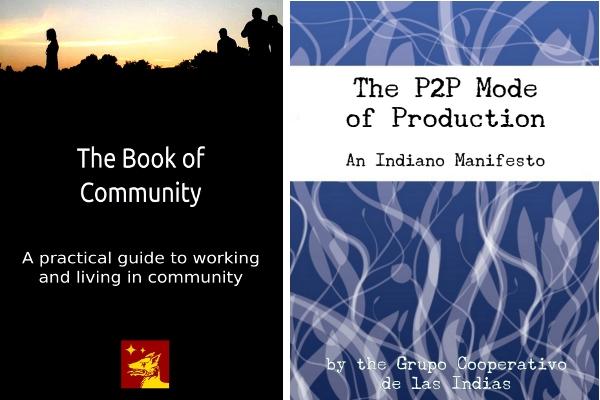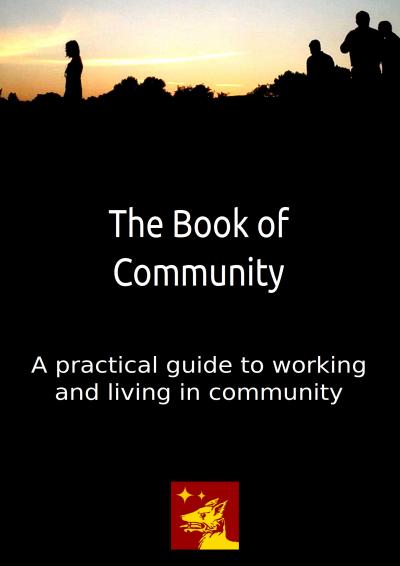
The Book of Community & The P2P Mode of Production
[Editors note: We're excited to announce two new ebooks from Las Indias, a trans-national, egalitarian community. These books were translated from the original Spanish by Level Translation and are now available in English for the first time. Below you will find a short excerpt and a preview chapter from each book. If you would like to download a copy (in .epub, .pdf, and Kindle-compatible formats), just click the buttons below--you can even make a contribition to help Level and GEO keep bringing you these insightful and inspring books. And don't forget to download your copy of The Book of Abundance the first in our series of translations from las Indias.]
The Book of Community
From the Prologue:
In the collective that came together into the early “Society of the Electronic Indies,” young hackers and network enthusiasts pulled off the difficult trick of being in the right time at the right age, and, also in their case, with their eyes as wide as platters and their ears listening attentively. They started with the metaphor of considering the Internet to be a new continent in need of exploring and mapping, and of enjoying the opportunities that could be glimpsed—hence the name, laden with reminiscences, of the “Society of the Indies.” Over time, they came to realize that the true continent to discover and habit was themselves: the community of learning, of business, of life, that had been built over the years; that their experience of personal and collective autonomy was a wealth in itself, a treasure, as I said initially, in these confused times we live in, which they are not the only ones to call decomposition. This is the experience they share with us in The Book of Community.
[...] The Indianos build their community, and create tools by intuition, by trial and error; it’s only later that they encounter historical references—well hidden from the general public, to be sure—of others that tried to build their own communities of free and productive people in the face of pressure from States or religions and dominant forms of thought in their times. They read and learn from those histories, from their successes and their failures, and find their place in that whole process, their place on a continuum of struggles for freedom, and no longer feel alone, marginal, freaks, but part of a noble tradition.
This is reflected in the very structure of the book: first, the experience that they want to share with us, what they have learned together in their flesh and blood, in their pockets, in their backs, with few clues to follow, making it up as they went by trial and error... and second, passionate historical references: Epicureanism, the Icarians, the kibbutzim... The tradition of community, so to speak: a way of letting us know that their experience isn’t eccentric, but rather is found throughout human history.
The P2P Mode of Production
From the Conclusion: We are researching the fundamental characteristics of the new mode of production, based on small productive scales, relationships between equals, a new hacker work ethic, and, above all, the knowledge commons. It seems like a good basis for the necessary transition towards a new social and economic system. And, most importantly, it’s already here, it works, and it’s not a morality tale, a silver bullet, or well-intended activism. The P2P mode of production isn’t some ideologue’s plans for the future. It’s not a partisan thing or the dream of some small group of true-believers. It’s a real (if young) alternative for the organization and reconstruction of the productive community on a new basis. It doesn’t need leaders or governments to develop, but rather the work of all those who want to gain resilience for their communities based on competition without rents, and on collaborative labor. Download eBook
Get more ebooks in the GEO Store
Go to the GEO front page



Add new comment